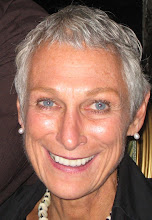Many things have disoriented and challenged me over the past two months: language and culture, suburban life, habitating with a child, gastro-intestinal adjustment, not having a blackberry or a mobile, focus on the family and not much focus on culture. I’ve had to learn to value my own work as a volunteer, because I’m not going to be getting heaps of praise for it. I’m learning to accept that the Senegalese generally, and the Senegalese government in particular, do not share my perspectives on time.
Big topics, it would seem. But they were nothing in comparison to my relationship with Ieta and Suzette, the duo with responsibility for caring for Seal, keeping the house and preparing our meals. They are a fluid duo—Ieta and Suzette, Suzette and Ieta—conjoined in name and in responsibility. One minute, Seal is bundled up on Ieta’s back while she makes French fries and the next minute, he’s on Suzette’s hip as sweeps the floor. Suzette starts ironing and Ieta finishes. They arrive together, leave together.
I lived with domestic help in my sorority, and I eventually worked with them. But it seemed different, most particularly because I could talk to them. Here, with Ieta and Suzette, language is only one of the barriers I have to overcome. For instance, there’s a DMZ between Ieta’s kitchen when she’s in it and me when I want something that’s in the kitchen. I feel like I’m crossing over into North Korea to get water out of the fridge or wash my hands at the sink.
There’s also the underwear barrier. These two are washing my tightie whities, and I find it a little weird. Do they think I’m a prude because I wear Hanes women’s briefs? Do they compare my underwear to Nathalie’s lacy, sexy lingerie? Do they think I have too many clothes from the Gap?
They are young--in their 30s. Both are moms. They wear really cool, chic street clothes--jeans and t-shirts--to work most days. On Friday, which is the Muslim Sunday, they wear traditional Senegalese dresses. They are always gorgeous, but especially on Fridays.
Of course, if we could speak the same language, my sense of separation from Ieta and Suzette would probably melt away. Amazingly, they seem to be picking up my American idioms and slang without much difficulty, while I am still puttering along with basic French. So I’m sure you can imagine how nearly impossible it is for me to make jokes when I can’t remember how to ask: Where did Paul go?
But today we had a breakthrough…happily at my expense. Ieta makes a killer hot red pepper sauce that I have learned to love. It is fantastic! Paul swears I’m becoming Senegalese because I’m eating it on all the native dishes: yassa, maffi, domoda, soupe kandje, katchoupa. Today, when he asked me how I liked the sauce, I said in a combination of French and English: “I’m a 58 year old, single white woman. This sauce is the closest thing to hot sex that I’m going to get. And I LOVE IT!”
Even through the messy French, Ieta and Suzette got it! They laughed hysterically. And something in our relationship has changed.

